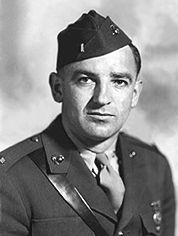The state of TIAH
May 17th, 2007
Digg this
Alternate Historian's Note: C'mon people! In 10 days, we'll hit TIAH's third anniversary. As before, that calls for a contest! Please send in your alternate versions of the Academy's beginnings (May 27th, 2004 was the date in this timeline). You can even use the fact that we lost the original day and had to restart on the 28th – whatever you can think of to provide a twist to our start. Send 'em in, and we'll print 'em! Be sure to tell us how you want your credit for the post to appear, as well as any links you want to be connected with your entry. Thanks for reading and get researching those alternate timelines!
in 1891, just after the stroke of midnight, an exhausted Allan Duggan forces his stolen horse into Colonel Theodore Monteith's headquarters in Nebraska and begs to be taken to the Colonel immediately. Although cranky about being woken up, the colonel listens with horror to what the young scout has to tell him about the battle going on in Concordia, Kansas. “Put this man in my bed,” he orders his aides, “and then let's see about getting his friends some help.” Wasting little time, he puts together reinforcements for the embattled major fighting the Kansans in Concordia, and sets them on a speed march south. During the day's fighting at the Concordia fort, Major Mark Wainwright loses another 300 men, and flies a white flag to get the attention of the Kansan commander. When the commander comes forward, Major Wainwright asks him, “Sir, what are your terms for our surrender?” The rebel volunteer ponders for an hour with his staff, then returns to Wainwright and tells him, “You'll all lay down arms, abandon this fort, and be taken into custody. Your men will be imprisoned until this is all over, but you, sir, will be executed for crimes against the sovereign people of Kansas.” The Union soldiers cry out in indignation at this last term, but Wainwright holds up his hand to silence them. He asks, “May I have some time to consider these terms, sir?” The Kansan looks over the fort, looks back at his own men, then replies, “You may have until sunset, sir.” Wainwright's staff is utterly opposed to surrender, but the major tells them, “I am tired of being the cause of death for so many of my fellow soldiers and citizens. If it saves you, I am willing to let them execute me.” This causes another outburst from his aides, which he stills. “At sunset, I will accept their terms. Gentlemen, it has been an honor serving with you.” They all stand and salute him, then leave their makeshift office to prepare their men for captivity. Wainwright takes a walk about the fort, enjoying the late afternoon; it is a fine day, cool and sunny, and he smiles and speaks with each of the men as he passes them by. As the sun makes its way down the sky, he walks back to the wall of the fort and ascends to the top wall. The Kansan commander stands opposite him, waiting for an answer. Wainwright takes one last look at the horizon, smiling faintly at the setting sun, then looks down at the rebel leader, who asks him, “Sir, your answer?” The major looks over at his lieutenants, who look away dejectedly, then says, “Sir, my answer is...” Before he can finish the sentence, a cannon balls bursts into the Kansan ranks from behind. Wainwright looks beyond the teeming ranks of rebels and sees a huge column of Union soldiers driving towards the fort. Wainwright laughs wildly and shouts to the Kansan commander, “Nuts!” His men cheer loudly and begin firing as he throw the white flag away.
| In 2032, Commander Albert Raft and his astronaut crew return to Earth after forty years to discover the 20th century ended with a bang. The population of the Earth was all but destroyed in the Collapse that followed the “Five Days” of the apocalypse. All that remains are a very few “Gone Timers” such as Commander Raft, and their clones, including a clone that was secretly prepared from Raft prior from his departure. And one other. |
~ variant from Steve Payne: extensive use of original content has been made to celebrate the author's genius.
| In 1972, Marvin Gaye warned duet singer Diana Ross about her excessive marijuana smoking which he believed endangered wife Tammi Terrell's unborn child, Marvin Junior. Ross was unrepentant, her excessive drinking had forced her out of the Supremes five years before and it was way too late to go back now. |
~ entry by Steve Payne from Counter History in Context - You're the Judge!
 Joseph McCarthy | In 1947, Senators Millard Tydings and Joseph McCarthy shared yet another late night drink together. Tail gunner Joe had been dropping rather indiscreet hints for most of the whole evening. As the bourbon started to take effect, the slurred hints were reducing in subtlety. A red faced Tydings whirled around knocking McCarthy's .. |
| .. vase of bourbon over and grabbed his collars. Wild with anger, Tydings screams in his face – 'Do you mean to tell me that you already know the perpetrators of this heinous crime?' 'Why yes', replies McCarthy ' and he has convicted himself by his own guilty countenance'. Tydings falls backwards towards the bar, gasping with shock. | |
~ entry by Steve Payne from Counter History in Context - You're the Judge! | |
| In 1989, strikes are widespread throughout Europe and particularly in Great Britain. The armed crackdown has united the labour movement and the student's union with strong support from the general population. The House of Stuart is in serious trouble and it appears that more than a compromise is going to be required before the crisis is over. |  Picketing |
~ entry by Steve Payne from Counter History in Context - You're the Judge! | |
 Richard Nixon | In 1973, during the Watergate scandal, hearings began in the United States Senate and are televised. The conspiracy by President Robert F Kennedy's to fake the break-in at the Democrat Headquarters was unravelling fast. However, it was too late for Richard M Nixon who had the misfortune of having the Presidency stolen from .. |
| .. him by the Kennedys twice. | |
~ entry by Steve Payne from Counter History in Context - You're the Judge! | |
| In 1902, between the islands of Kythera and Crete the archaeologist Spyridon Stais found the Antikythera mechanism, an ancient mechanical analog computer designed to calculate astronomical positions. The Antikythera Mechanism Research Project was established by Cardiff University, the National and Kapodistrian University .. |  Antikythera mec.. |
| .. of Athens, the Aristotle University of Thessaloniki, the National Archaeological Museum of Athens, X-Tek Systems UK and Hewlett-Packard USA, funded by the Leverhulme Trust and supported by the Cultural Foundation of the National Bank of Greece. Their research demonstrated that the device accurately predicted the Syzygy, the alignment of all 10 planets on the same side of the Sun in 1982. For the first time, all of humanity could see the counter-earth postulated by Galileo through deductive logic in 1610 and obviously known about by the Ancient Greeks as evidenced by the Antikythera mechanism. | |
~ entry by Steve Payne from Counter History in Context - You're the Judge! | |
Cool stuff - Let us know where you are on Frappr! and We've been Dugg
We have links again! Yay, us. Check them out on the side of the page, and if you have some suggestions, send them to us!
Visit the Co-Historian's store -


No comments:
Post a Comment